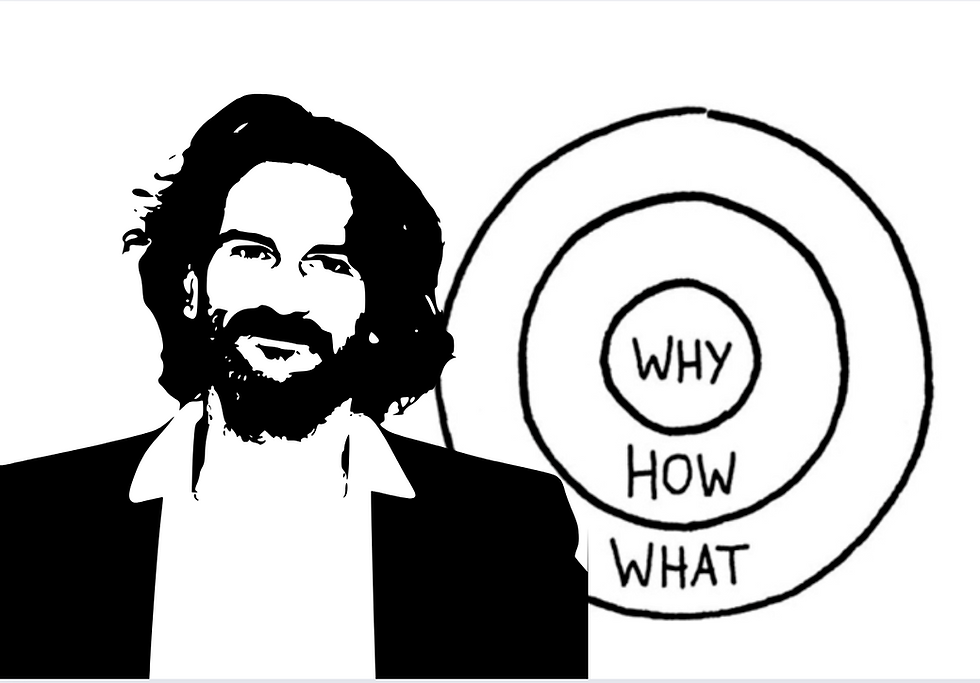William Bernbach: The Creative Mastermind Who Changed Advertising Forever
- Eleonora Guido
- Jul 23, 2025
- 3 min read
Today I want to share a thought with you—a story, really. A story about one of the most brilliant minds in advertising history: Bill Bernbach. And why, even in an age of artificial intelligence and automation, I believe that the essence of creativity hasn’t changed.
Bernbach was a visionary—someone who saw beyond the ad itself, turning every message into an experience, a feeling, a story that resonated. And even now, with AI becoming an everyday tool in marketing and communication, some things will always remain deeply human:intuition, empathy, and the ability to craft stories that move people.
Technology can make us faster. It can sharpen our execution. But real creativity? That still starts with a spark—an idea that only a human mind can ignite.

When I First Met Bill Bernbach (Sort of)
Let me take a small personal detour (not too polemical, I promise). I studied Communication Sciences—yes, the one people love to call “the degree of potato chips.”
But here’s a thought:If you don’t want to operate on hearts or build skyscrapers, but you do want to work in media, strategy, and storytelling, then you should study communication.
And it’s thanks to a wonderful course in Advertising History that I first heard of William Bernbach. Without that, we wouldn’t be having this conversation right now.
Two Campaigns That Made Advertising History
Avis – “We Try Harder”
In the 1960s, Avis was far from being market leader. But instead of hiding it, Bernbach made it a strength."Avis is only No.2 in rent-a-cars. So why go with us? We try harder."Genius, right?
Being honest—even about your weaknesses—can be more persuasive than a hundred hollow promises. This iconic campaign flipped the narrative: being second meant caring more, working harder, and serving better.It changed the rules of advertising, proving that authenticity outperforms perfection.
Volkswagen – “Think Small”
Possibly the most iconic campaign of all time.In 1960s America, where cars were massive and flashy, the VW Beetle was tiny—and mocked for it.
Bernbach didn’t run from that. He leaned in.
With the famous “Think Small” campaign, he invited Americans to rethink their values. Why go big when you can go smart?
With minimalist design, clever copy, and a refreshingly honest tone, Volkswagen went from oddity to icon. Bernbach didn’t just reposition a product—he changed the entire narrative of American car culture.
Who Was William Bernbach, Really?
Bill Bernbach is universally recognized as one of the founding fathers of modern advertising. As co-founder of the legendary Doyle Dane Bernbach (DDB) agency, he revolutionized the industry by breaking free from rigid formulas and encouraging creative collaboration between copywriters and art directors—a concept now considered obvious, but back then, it was radical.
He believed that emotion beats information. That advertising should connect, not just convince.And thanks to him, the ad world evolved—from facts and features to feelings and storytelling.
Has Advertising Really Changed?
Technically? Absolutely.Today we can do things Bernbach never dreamed of—analyze data at scale, automate workflows, generate content tailored to hyper-specific segments in real time.
We can use AI to brainstorm, optimize, and personalize. We can build entire campaigns in the time it used to take to approve a headline.
But here’s the thing:
Technology is a means, not an end.
AI can catch typos and generate 100 versions of an ad. But it can’t spark the kind of emotional insight that made “Think Small” unforgettable. It can’t instinctively know when less is more. That’s a human skill. And it always will be.
AI Is Just a Tool—And That’s Okay
Don’t get me wrong—I love AI.It’s an incredible ally.But it can’t think like Bernbach.It can’t come up with a disruptive insight like “We’re No. 2. We Try Harder.”
It can write a thousand captions.But it’s still the human touch that turns a sentence into a story.
So What Can We Learn From Bernbach Today?
That advertising is still an act of courage. Of honesty. Of empathy.
And in an age obsessed with performance metrics, maybe it’s time to get back to those fundamentals.Because when technology starts to dictate the rules, we risk losing the human magic that made this industry great.
Marketers are still the architects of connection. And it’s our responsibility to use tools like AI to amplify ideas—not replace them.
The Real Question: What Truth Are You Telling?
Next time you sit down with a brief, ask yourself something simple:
What’s the truth I want to tell?And what’s the most human way to tell it?
Because in a world full of automation, algorithms, and content at scale, the brands that will stand out are the ones that still have something real to say.
The Future Is Still Human
AI may reshape how we do advertising—but it will never replace what makes it meaningful.That spark of creativity.That strategic insight.That moment of connection.
Those things are still—gloriously—ours to create.




Comments